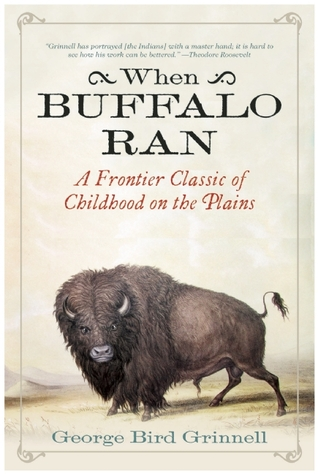When Buffalo Ran: A Frontier Classic of Childhood on the Plains -- by George Bird Grinnell
There's plenty of potential in this book first published in 1920 by Yale University Press. I gave it four stars, but I question my own decision-making sometimes. It's a strong four.
This space and airy simple, but effective tale of the life of Wikis, growing into a warrior when his people needed him the most out on The Great Plains against other tribes, the US Cavalry, hunger, and injury, pursuing food is only 114 pages. It could easily be a (YA) Young Adult Book long before literary agents came up with the term. It could also easily be used as a scriptwriter's base for a movie, or documentary.
Oddly George Bird Grinnell's book doesn't clearly, or firmly, name Wiki's tribe, but they were friends of the Arapaho. It was with the Arapaho that Wiki had his first successful raid, and the Plains Indian situation was better understood, too. Each tribe had its own allies but was basically an island of people.
Grinnell was a New Yorker, but went on some hunts out west, led by Pawnee scouts, and he is credited with being an influential conservationist. Good enough to influence Teddy Roosevelt.
This is a book that I inherited from my Mom. Thanks Mom.




